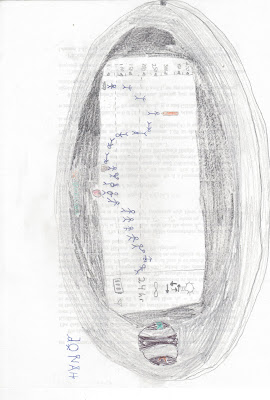On Thursday I walked about ten miles. Took a water bottle, was good with hydration, nary a high blood sugar all day (it did bump up to about 160). I didn't eat much, but... whatever. I got home and tested for urine ketones because they've tended to be running trace a lot of the time in the past nine months or so. The color changed really quickly to moderate, I put the strip down, picked it back up and it was the color of very large ketones. Whoa! So, I took out the Nova Max meter and tested blood ketones and got a result of 0.4, which is the upper end of normal, and is supposed to correspond with negative or maybe trace ketones.
So... if I were to just test blood ketones, I think I'd find normal, normal, normal, ketone levels. But on urine ketone levels, I've seen trace to small ketones the majority of the times I've tested in the past year.
While a negative blood ketone test is somewhat reassuring, the fact of the matter is that even moderate urine ketone levels strongly imply that something is going on. The fact that I developed a high urine ketone load while hydrated and euglycemic (unless you think 160 is ketogenic) makes me wonder if either exercise or lack of calories could be responsible and if it is safe for me to eat small breakfasts and lunches.
I also wonder if the blood ketone meter's demarcation of normal is correct, since I've read other people claiming that they typically have lower blood ketone levels and don't see numbers like 0.4 unless they are sick.
I pulled that second hip sensor when it missed a low, I tried calibrating with the low (bg of 62 vs sg 140 or something like that) and it said Error 1 and didn't recover. I now have a sensor in my arm and it is working beautifully.
